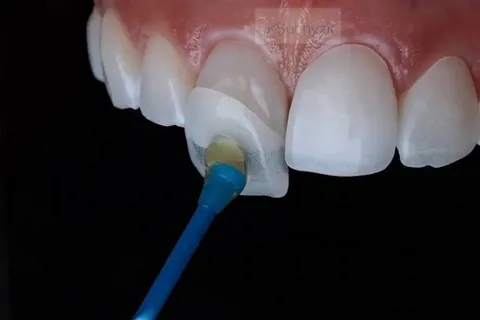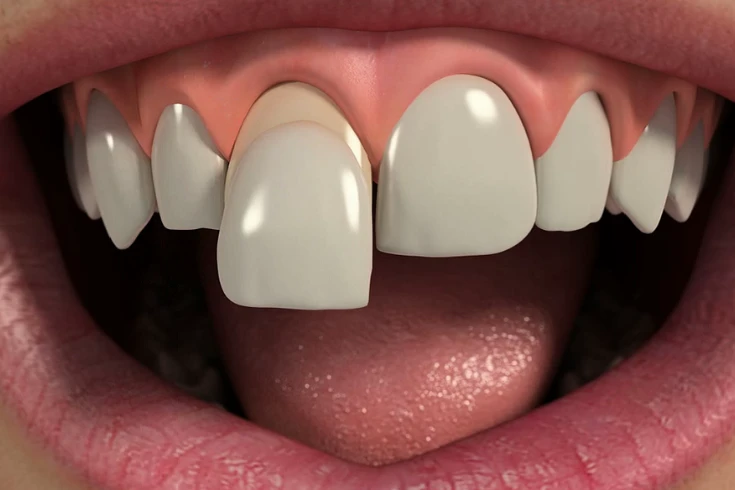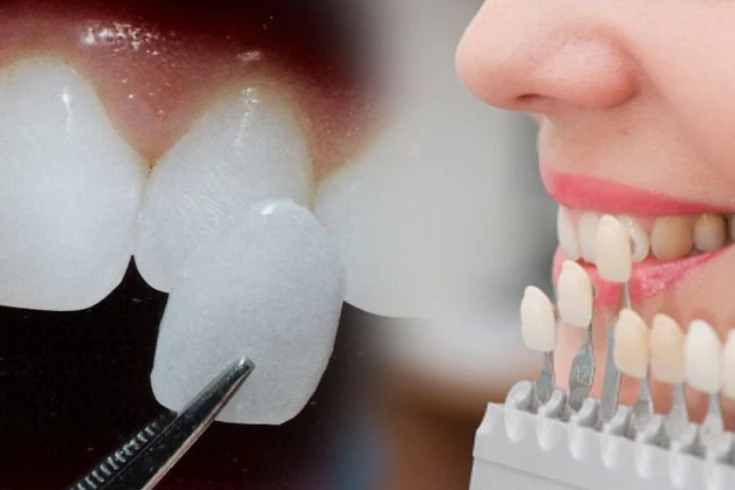Dental services are one of the most expensive health services. However, they are quite expensive, which raises the question of whether insurance covers this procedure. Fortunately, there are many companies that cover the costs of denture procedures, depending upon the specific policy and the individual’s circumstances. Understanding your insurance options and coverage details can help you make informed decisions about your dental care. This guide provides the answers to questions like what is the best dental insurance for major dental work, the types of insurance it may cover, and what is the best dental insurance with no waiting period. It even provides tips for maximizing your benefits.
Why Do You Need Dental Insurance?
Dental insurance helps manage the cost of dental care by covering a portion of expenses for routine and emergency procedures. Benefits of having insurance for your dentures include:
- Cost Savings: Reduced out-of-pocket costs for routine and major dental procedures.
- Preventive Care: Coverage for regular check-ups and cleanings to prevent serious dental issues.
- Access to Care: Easier access to dental services and a broader network of dental providers.
In case, you need emergency dental implant services, you can contact us at anytime by reaching out to us through; Dental Implants Service Provider.
Types of Dental Insurance Plans
There are several types of insurance plans available, each with different levels of coverage and costs: Below are some plans mentioned from which you can choose the best dental insurance plans that will fit you:
Dental Health Maintenance Organization (DHMO) Plans
DHMO plans require you to choose a primary dentist within the network and usually cover preventive care at 100%. For other procedures, you’ll pay a fixed copayment. These plans typically have lower premiums but less flexibility in choosing providers.
Preferred Provider Organization (PPO) Plans
PPO plans offer a network of dentists to choose from, but you can see out-of-network providers at a higher cost. These plans generally cover a percentage of costs for various procedures, with preventive care often covered at 100%. PPO plans usually have higher premiums but more flexibility.
Indemnity (Fee-for-Service) Plans
Indemnity plans allow you to visit any dentist and are reimbursed for a portion of the costs. These plans provide the most flexibility but typically have higher out-of-pocket expenses and premiums.
Discount Dental Plans
These are not insurance plans but offer discounts on some specific services for a monthly or annual fee. Members receive reduced rates from a network of participating dentists. These plans have lower costs but do not provide the same level of coverage as traditional insurance.
Understanding Your Dental Insurance Needs
Before diving into the details of various dental insurance plans, it’s crucial to understand your own needs. Consider factors like how often you visit the dentist, whether you have any specific dental issues, and what types of procedures you may need in the future. Are you looking for basic coverage, or do you require more extensive services such as orthodontics or cosmetic work? Knowing your needs will help you narrow down your options and focus on plans that align with your requirements.
Key Factors to Consider When Choosing Dental Insurance
When evaluating dental insurance plans, there are several key factors to keep in mind:
- Coverage: What services are covered under the plan? Common services include preventive care (cleanings and exams), basic procedures (fillings), and major procedures (crowns and root canals).
- Network: Does the plan include a wide network of dentists, or are you limited to a specific list of providers? Having a broad network can be beneficial if you want more flexibility in choosing your dentist.
- Premiums and Deductibles: How much will you pay each month for coverage, and what are the out-of-pocket costs? Evaluate the balance between premiums and deductibles to find a plan that fits your budget.
- Waiting Periods: Some plans have waiting periods before certain types of coverage kick in. Make sure you understand these waiting periods, especially if you anticipate needing extensive dental work soon.
- Annual Maximums: Most dental insurance plans have an annual maximum limit on how much they will pay for services each year. Ensure that the limit is sufficient for your anticipated needs.
Comparing Coverage Options: What to Look For
When comparing different dental insurance plans, pay close attention to:
- Preventive vs. Major Coverage: Plans typically offer different levels of coverage for preventive care (usually higher) compared to major procedures (often lower). Assess how well the plan covers the types of services you use most.
- Co-Payments and Coinsurance: Understand what you’ll pay out-of-pocket for various services. Some plans have fixed co-payments, while others use a percentage-based coinsurance model.
- Exclusions and Limitations: Check for any exclusions or limitations that may affect your coverage. Some plans may not cover certain procedures or may have limits on the number of treatments you can receive annually.
Evaluating Dental Insurance Providers: Tips and Criteria
When selecting a dental insurance provider, consider the following:
- Reputation: Research the provider’s reputation by reading reviews and ratings from current and past policyholders. Look for feedback on customer service and claims processing.
- Customer Support: Assess the quality of customer support by contacting the provider with any questions you may have. A responsive and helpful customer service team can make a big difference.
- Financial Stability: Ensure the provider has a strong financial rating, which indicates their ability to pay out claims and manage your coverage effectively.
How to Assess the Cost vs. Benefits of Dental Plans
To determine if a dental insurance plan is a good value, weigh the cost of premiums, deductibles, and co-payments against the benefits provided. Consider the overall coverage, including preventive care and major procedures, and how well it aligns with your dental needs. Sometimes a plan with a higher premium may offer better coverage, leading to lower out-of-pocket costs in the long run.
Questions to Ask Before Choosing a Dental Insurance Plan
Before finalizing your choice, ask these critical questions:
- What is covered under preventive, basic, and major services?
- Are there any waiting periods for specific procedures?
- What are the annual maximums and how are they applied?
- How extensive is the network of dentists?
- Are there any restrictions on treatments or providers?
Common Mistakes to Avoid When Selecting Dental Insurance
- Ignoring Network Limitations: Ensure your preferred dentist is in-network to avoid higher costs.
- Overlooking Waiting Periods: Be aware of waiting periods for specific procedures, especially if you need immediate care.
- Focusing Solely on Premiums: While low premiums are appealing, they may come with high deductibles or limited coverage.
- Not Reading the Fine Print: Carefully review the plan details to understand coverage limits, exclusions, and other important terms.
How to Use Dental Insurance to Maximize Your Savings
To get the most out of your dental insurance:
- Schedule Regular Checkups: Utilize preventive care benefits to avoid costly procedures later.
- Understand Your Coverage Limits: Make sure to use your annual maximum wisely and plan treatments accordingly.
- Ask About Discounts: Some providers offer discounts on services if you pay out-of-pocket rather than using insurance.
How to Find Reviews and Ratings for Dental Insurance Providers
Finding reviews and ratings can help you gauge the quality of dental insurance providers. Look for independent review sites, consumer reports, and forums where users share their experiences. Check for ratings from reputable agencies like J.D. Power or the Better Business Bureau for additional insights.
Conclusion
Choosing the right dental insurance requires careful consideration and research. By understanding your needs, evaluating coverage options, and avoiding common mistakes, you can find a plan that offers the best value for your dental health and financial situation.
Frequently Asked Questions
1. What is the best dental insurance?
Finding the best insurance depends on individual needs, such as coverage requirements, budget, and preferred service providers. Generally, top-rated providers include Delta Dental, Cigna, and Aetna, which offer comprehensive plans with a wide network of dentists and flexible coverage options.
2. What is the best dental insurance for seniors?
The best dental insurance for seniors often includes plans with enhanced coverage for procedures common in older age, such as dentures, crowns, and periodontal treatments. Providers like AARP Dental Insurance, Humana, and Delta Dental offer senior-friendly plans with comprehensive coverage and affordable premiums.
3. What is the best dental insurance with no waiting period?
If you need immediate coverage for emergency procedures, the best dental insurance with no waiting period is crucial. Plans from companies like Spirit Dental, NCD Dental, and some Cigna plans offer no waiting periods for preventive care and sometimes for basic and major services.
4. What is the best dental insurance for major dental work?
For extensive dental procedures such as root canals, crowns, or oral surgery, the best dental insurance for major dental work is one that offers high annual maximums, comprehensive coverage, and low out-of-pocket costs. Plans from providers like Guardian Direct, Delta Dental, and Ameritas are often recommended for their robust coverage options for major dental work.
5. How do I choose the best dental insurance plan for my needs?
To choose the best dental insurance plan, consider the following factors:
- Coverage Needs: Assess the types of dental services you require, such as preventive, basic, or major dental work.
- Budget: Determine how much you can afford to pay in premiums, deductibles, and co-pays.
- Network: Ensure the plan has a network of preferred dentists in your area.
- Waiting Periods: Look for plans with minimal or no waiting periods for necessary treatments.
- Annual Maximums: Check the annual maximum limit on benefits to ensure it meets your needs.
6. Are there dental insurance plans specifically for families?
Yes, many providers offer family insurance plans that cover multiple members of your household. These plans often include benefits for preventive care, orthodontics for children, and other family-oriented services.
7. Can I get dental insurance if I am self-employed?
Absolutely, Self-employed individuals can access a variety of dental insurance plans tailored to their needs. Companies like Delta Dental, Guardian, and Cigna offer individual plans that provide comprehensive dental coverage for those who are self-employed.





